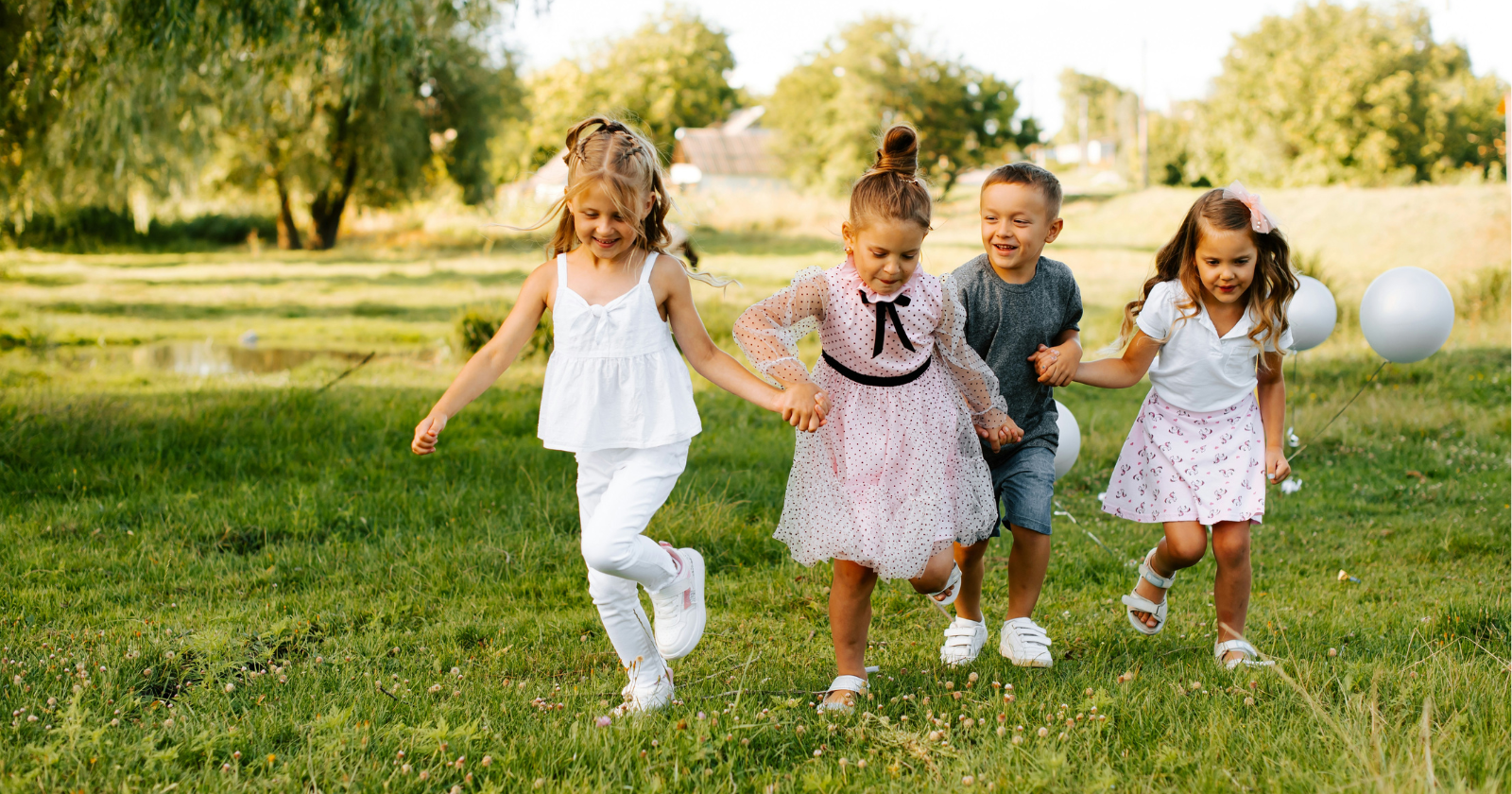If you’re anything like me, you wonder, Is any of this working? You put in the reps—packing lunches at night, tag-teaming bath time, doing the school-run shuffle, and then circling back after bedtime to reset the kitchen. It’s a lot. The results don’t show up on a gold star chart for parents. They show up in small, ordinary moments when your kid reveals who they’re becoming.
I’m a systems guy: I like routines that make home run smoother, and I like knowing that what we practice actually sticks.
On my work-from-home day, I’m the nap whisperer and snack architect, but I’m also paying attention—how Elise responds when she’s frustrated, what calms Julien when he’s spiraling, the ways our rituals help everyone feel steady. Over time, I’ve noticed certain behaviors that are quiet proof you’re doing something right.
Here are eight things I look for—the everyday signals that your parenting is landing.
1) They lead with kindness (even when no one’s watching)
The big giveaway isn’t a rehearsed “please” when Grandma is around. It’s the unprompted kindness. Elise will spot a kid left out at the playground and ask, “Want to race scooters?” No script, just empathy.
Where does that come from? It grows in the small ways you treat them. When we slow down to listen—really listen—they absorb, “People matter.” Kindness is a muscle built on modeling. When you hold the door, thank the barista by name, or wave another car through, your kids get hundreds of reps in seeing what respect looks like in the wild. They imitate it because it’s normal at home.
If your child offers a toy without being asked or checks on a sibling who’s crying, that’s not luck. That’s your daily tone turning into their daily instinct.
2) They can name feelings instead of acting them out
I used to think the goal was “no meltdowns.” Now I know the goal is helping our kids navigate big feelings without hurting themselves or others. When Elise says, “I’m frustrated because the block tower keeps falling,” that’s growth. When Julien, 14 months and a proud contact-napper, signs “all done” and leans into me instead of head-butting the floor, that’s progress too.
Mid-tantrum is not the time for a TED Talk, but it is the time for a few sturdy phrases: “You’re sad and you wanted more time.” “You’re mad; I’m here.” Later, we circle back: “What helped? What could we try next time?”
As psychiatrist Daniel J. Siegel likes to say, “Name it to tame it.” Labeling emotions calms the nervous system and builds self-awareness—skills they’ll use forever.
3) They take responsibility—and make it right
A well-raised child doesn’t need to be perfect. They need to be accountable. The milestone isn’t “never pushes their sibling.” It’s when they push, notice, and try to repair.
Related Stories from The Artful Parent
- If your kids fight constantly but defend each other in public they’re developing these 7 relational skills most only children never build
- If your child makes up elaborate stories with imaginary characters psychology says they’re developing these 7 advanced cognitive traits
- If you grew up being yelled at but promised yourself you’d parent differently these 7 struggles are completely normal
At our house we practice a simple sequence:
- Own it: “I knocked over your blocks.”
- Empathize: “That made you sad.”
- Repair: “Can I help rebuild?”
It’s never about shaming; it’s about building trust. When Elise spills milk and grabs a towel without a speech from me, I see the invisible training paying off. That initiative is your daily coaching taking root: you’ve shown them that mistakes aren’t moral failures—they’re chances to practice being dependable.
4) They stick with hard things (effort beats outcome)
“Again,” Julien says when I lower him from the slide and he face-plants in the grass. He gets up, we dust off, he tries again. That stubborn little “again” is a magic word.
Psychologist Carol Dweck’s research on growth mindset points out that when we praise effort and strategies—not just outcomes—kids become more resilient learners. Or as Dweck puts it, “Becoming is better than being.” That line sits on a sticky note near our coffee maker.
We aim for effort-based praise: “You kept trying different pieces until the puzzle worked.” “You took a breath and asked for help.” When the scoreboard isn’t the point, kids take more shots. That’s what you want: a child who tries, learns, and tries again without fear of failing you.
5) They respect boundaries—and hold their own

One of my quiet parent wins is when Elise says, “No, thanks, I don’t want a hug right now,” and the adult listens. That’s not rudeness; that’s agency. Kids who can hold their boundaries have been taught that boundaries are normal.
- I’m 73 and I finally stopped forcing myself to make small talk at gatherings because I realized the exhaustion I felt afterward wasn’t introversion – it was decades of performing interest in conversations that never once made me feel connected to another human being - Global English Editing
- How to enjoy travelling when you are over 60 - Global English Editing
- Being easy to be around is sometimes the loneliest skill a person can have - Global English Editing
We practice scripts because scripts lower the heat. “No, thank you, I’m playing right now.” “I’m not ready; I need space.” And the flip side matters just as much: they can hear our no without breaking. “We’re leaving the park in two minutes.” Predictable routines help here. When your child trusts your words, limits feel safe, not arbitrary.
If you’ve raised a kid who can say what they’re okay with—and hear other people’s limits without seeing them as rejection—you’re building a future adult who knows consent, respect, and self-respect.
6) They help at home without a courtroom negotiation
Chores aren’t about extracting free labor. They’re about cultivating competency, belonging, and pride. On Sunday afternoons, I batch-cook while Elise “runs the restaurant.” She’s on napkin duty and table wipes; I’m on sheet pan veggies and chicken. Julien is our sous-chef in the carrier, solemnly entrusted with the wooden spoon.
When kids participate, they move from “served” to “part of the team.” At age-appropriate levels, they can: carry their dish to the sink, sort laundry into light/dark baskets, pair socks, restock the diaper caddy, put books back on a low shelf. We don’t make it a debate—just part of the rhythm. And we keep jobs small and specific: “Please put the spoons in the drawer,” not “Clean the kitchen.”
If your child jumps in with a can-do attitude—especially if they sometimes start without being asked—you’ve built a culture where contribution is normal. That’s you.
7) They know how to repair after conflict
Siblings are a master class in conflict. Ours have a crash course daily. What I’m proud of isn’t “no fighting”—it’s how quickly they return to connection.
We do a reset ritual I borrowed from relationship research: pause, breathe, name, repair. We keep it simple and embodied because kids learn with their whole selves. I might kneel to Elise’s level and say, “Your body is tight; let’s shake out the mad,” then guide two deep breaths.
When everyone’s cooler, we revisit the problem: “How can you two both use the scooter?” Sometimes it’s a timer, sometimes it’s turns, sometimes it’s switching to chalk while the other rides.
As noted by relationship expert John Gottman, “In the strongest relationships, people make lots of repair attempts—and they notice and accept their partner’s attempts.” Kids can learn this, too. The small, ordinary “Do you want to start over?” becomes a family superpower.
8) They explore independently—because they feel connected
When I wear Julien on a neighborhood walk, he’ll tuck under my chin for a while, then twist to look out at the world, pointing and humming. That ebb and flow—close, explore, return—is the pattern you want. It says, “I feel safe enough to stretch.”
Secure kids don’t need you to be six inches away every second. They need a reliable base. Our bedtime routine is the best example: lights down, warm bath, pajamas, two books, the same lullaby, a quiet rub on the back. Elise knows what’s coming, so she can relax. Predictability is freedom. It lets kids spend less energy on “What happens to me?” and more on “What can I do?”
If your child can focus on a puzzle for ten minutes, try new skills without freezing, and come back to you for a refill of closeness—good news: your everyday steadiness is translating into courage.
Your quiet excellence is showing
I think about this during the 2 a.m. bounce-back to sleep. I hum, sway, and feel Julien’s body go from board-stiff to heavy and warm. In the morning, I’ll pack Elise’s backpack—water bottle, sun hat, snack she helped choose—then we’ll scooter to the corner, stop at the crosswalk, and she’ll reach for my hand without me asking. It’s a five-second moment. It tells me everything I need to know.
If your child does the eight things above even sometimes, that’s not coincidence. That’s the compound interest of your patience, your systems, your teamwork, your repairs after the messy moments. It’s your calm tone when you wanted to yell. It’s your choice to explain why instead of just saying because.
It’s the way you and your partner (or your support crew) shoulder the mental and physical load together, on the days you’re both joyfully wiped because you gave your best to your family and your work.
You won’t get a trophy for this. You’ll get something better: kids who are kind, accountable, resilient, and brave—kids who reflect the home you’ve built. That’s proof enough.



